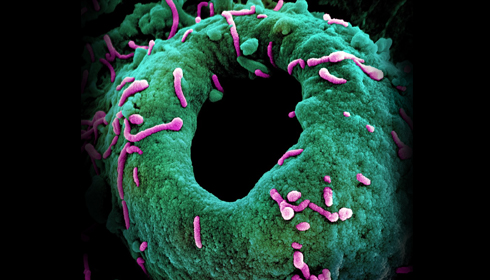
Rwanda Begins Countdown to End Marburg Virus Outbreak After Last Patient Tests Negative
On 9 November 2024, Rwanda initiated a 42-day countdown to officially declare the end of the Marburg virus disease (MVD) outbreak. This significant development follows the last confirmed patient testing negative on 8 November, signalling a hopeful turning point in the country's battle against the virus. An outbreak has emerged, with 66 confirmed cases and 15 fatalities, leading to a concerning case fatality ratio of 23%. In a significant development, 51 patients have successfully recovered, marking a hopeful turn in the situation, while Rwanda has reported no new cases since 30 October 2024.
The World Health Organisation (WHO) is actively collaborating with the Rwandan government, prioritising containment and prevention measures to effectively resolve the ongoing outbreak. The World Health Organisation emphasises the critical importance of ongoing surveillance and infection prevention and control measures during the countdown period, underscoring that these actions are vital until the outbreak is officially declared over. The World Health Organisation has established that the outbreak will only be deemed contained if there are no new cases reported during a critical 42-day period, a timeframe that is double the virus's maximum incubation period.
Health authorities have confirmed that Kigali is the epicentre of the outbreak, with two healthcare facilities responsible for nearly 80% of the confirmed cases. A significant majority of those impacted were male, accounting for 68%, while adults in the 30 to 39 age bracket represented 45% of the total cases. The outbreak experienced a swift escalation during the initial three weeks, reaching its peak between weeks 39 and 41, followed by a notable decline.
The response effort has prominently featured extensive testing and contact tracing initiatives. The Rwanda Biomedical Centre has undertaken an extensive effort in combating the Marburg virus, conducting a total of 7,408 tests. This initiative involves the processing of daily samples ranging from 100 to 350, showcasing a significant commitment to public health and safety. A total of 470 contacts are presently under observation, with follow-up measures set to continue for a duration of 21 days.
Despite the encouraging decline in cases, Rwanda’s health agencies are exercising caution. The World Health Organisation has underscored the necessity of maintaining enhanced surveillance and infection prevention and control measures until the outbreak is officially declared over.
Rwanda's robust health response, in accordance with WHO’s recommendations, has fostered a sense of cautious optimism as the nation moves closer to ending the outbreak and curbing the further spread of this severe disease.